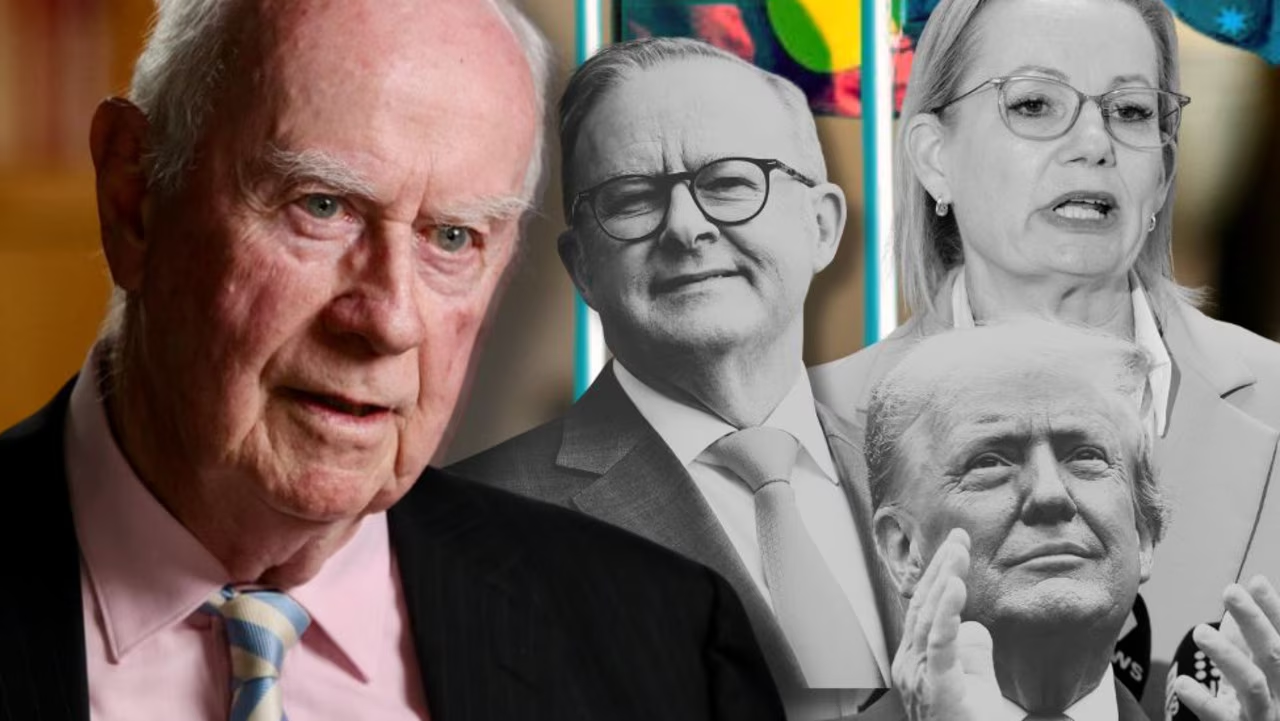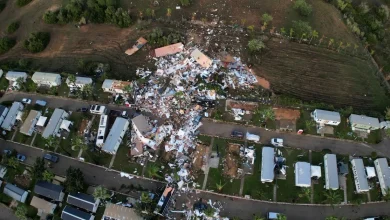Witness to history: Paul Kelly on the big issues

He’s taken the temperature and delivered his verdict on all things political for more than 50 years.
The Australian’s Editor-at large , Paul Kelly has more than earned his place as a grand old guardian of Australian journalism.
Kelly has made it his life’s work to capture, distil and explain Australian thought and experience, and the events of 1975 — the Dismissal — soak through it all.
As we release a documentary marking the 50th anniversary of the dismissal of Gough Whitlam, an event which remains the most significant of Australia’s political history, it’s fitting that Kelly is front and centre reliving the events of that time.
Not least because it’s also the event that got Kelly sacked from The Australian.
Fast forward to now — Kelly has written five books on the dismissal of Gough Whitlam. a dozen more on other subjects, and millions of words of news, analysis and opinion in newspapers.
And of course The Australian rehired him.
He can summon every second of the day of the Whitlam dismissal from his memory.
“I took five minutes out, about 7pm, before I started to write, thinking to myself, stay calm, be professional. Don’t write some emotional piece of trash. Write something for the ages,” he says.
Here’s a taste of Paul Kelly’s takes on Australian politics’ big issues.
On Donald Trump’s leadership: ‘Trump can dismantle but he cannot build’
There is a justification for Trump – as a necessary and powerful corrective mechanism for the arrogant overreach of the progressive establishment in its control of public and private institutions and its attack on the foundations of liberalism. Trump is the figurehead for a cultural transformation driven by an American right that turned traditional conservatism to a radical counter-revolutionary movement. Trump did not create this movement but he has seized control of it through his charismatic appeal. [But] Trump is not a builder. He lacks the institutional and policy capacity to strengthen America’s economic base; witness his misunderstanding about how high tariffs work given they will lift prices, penalise consumers and misdirect resources.
Read the full analysis here.
On Anthony Albanese’s election victory: ‘Most extraordinary election I have seen’
Australia has been remade in political terms in one of the most extraordinary elections in our history. Anthony Albanese is an enhanced Prime Minister able to put Labor’s imprint on the nation and guarantee a long-term government. The Liberal Party is smashed – plunged into its worst ever crisis, its future in question.
Read the full analysis here:
On the Australia-US alliance: ‘Americans can’t ask Australia to do something the US won’t’
The arrogance and ineptitude of the Trump administration in seeking the integration of Australia into its America First strategy in the Indo-Pacific risk a political backlash in this country and even serious damage to the alliance relationship.
Read the full analysis here:
On China: ‘China’s world vision finally unleashed’
The symbolism is paraded before the world – China intends to dominate in industrial, military and ideological domains. Xi Jinping operates in a blend of intimidation and seduction – and it is working. His propaganda message is unmistakeable: China’s rise means America is finished as number one.
Read the full analysis here:
On Australia’s defence capability: ‘Nation faces brutal reckoning’
The juxtaposition between our shoddy complacency and our strategic challenge was highlighted last weekend when historian Geoffrey Blainey wrote in this paper: “Australia was better prepared for the outbreak of World War I in 1914 than it is now prepared for almost any kind of international war.”
Read the full analysis here:
On Anthony Albanese’s progressive experiment on the world stage: ‘Australia has become a global test case’
But playing both sides of politics is now close to being unmanageable: the fading utopianism of the left from identity politics to climate action to huge social spending to scepticism about sovereignty now confronts rising demands from the right prioritising national cohesion, more muscular policies, security in a more dangerous world and a resurrection of patriotism.
Read the full analysis here:
On the Indigenous voice to parliament: ‘Crushing defeat will last a generation’
Indigenous leaders took a historic gamble by demanding a voice in the Constitution – their quest for “substantial”, not “symbolic”, recognition. By tying constitutional recognition to the voice the Indigenous leaders, the Albanese government and the elites who backed this strategy have lost both – no voice and no constitutional recognition. It is a blunder on a momentous scale.
Read the full analysis here:
On the Liberal Party’s collapse in support: ‘A crisis 20 years in the making’
The Liberal crisis is unique in the party’s 80-year history. It is driven by three forces that have never coalesced before – an alarming collapse in voting support, an internal rupture over core beliefs and personality disputes over the leadership.
Read the full analysis here:
On Australia’s cost-of-living crisis: ‘Dismal disregard to cost-of-living grief’
It is a deadly troika. The fusion of an election, inflation and a housing crisis has taken Australian public policy to a dismal low. The public, to a large extent, is being offered phony and glib answers to its cost-of-living grief.
Read the full analysis here:
On tax reform: ‘Essential for the country, not for Albanese’
The roundtable has opened a serious debate about tax reform, but in no way does it constitute political cover for action. There is no consensus in our political system about tax reform. There was broad agreement at the roundtable about three main directions – as the Treasurer identified – but a direction does not equate to a policy in economic or political terms.
Read the full analysis here:
On reconciliation with Indigenous people: ‘Grievance politics imperils our future’
This runs in parallel with the campaign to move Australia Day, which is denounced as racist. Once that brand is put on Australia Day it becomes a moral imperative to abandon it. This tactic is obvious and gains traction as one local council after another examines the issue. Burney said on Sky News that it is not a “unifying day” while conceding it “needs to be respected”. In short, the current situation is untenable.
Read the full analysis here:
On Australia’s productivity: ‘Experiment will make or break Labor’
The full extent of Chalmers’ ambition to create a new productivity agenda was obvious before the 2022 election but barely recognised. Yet the conditions are now established; Australia moved to the left at the 2022 election and further to the left at the 2025 election. That generates momentum for what is best described as a progressive productivity agenda – an entirely new experiment for this country – closely tied to the evolution of institutions and changing economic norms seen in evolving attitudes from the Treasury to the PC.
Read the full analysis here:





